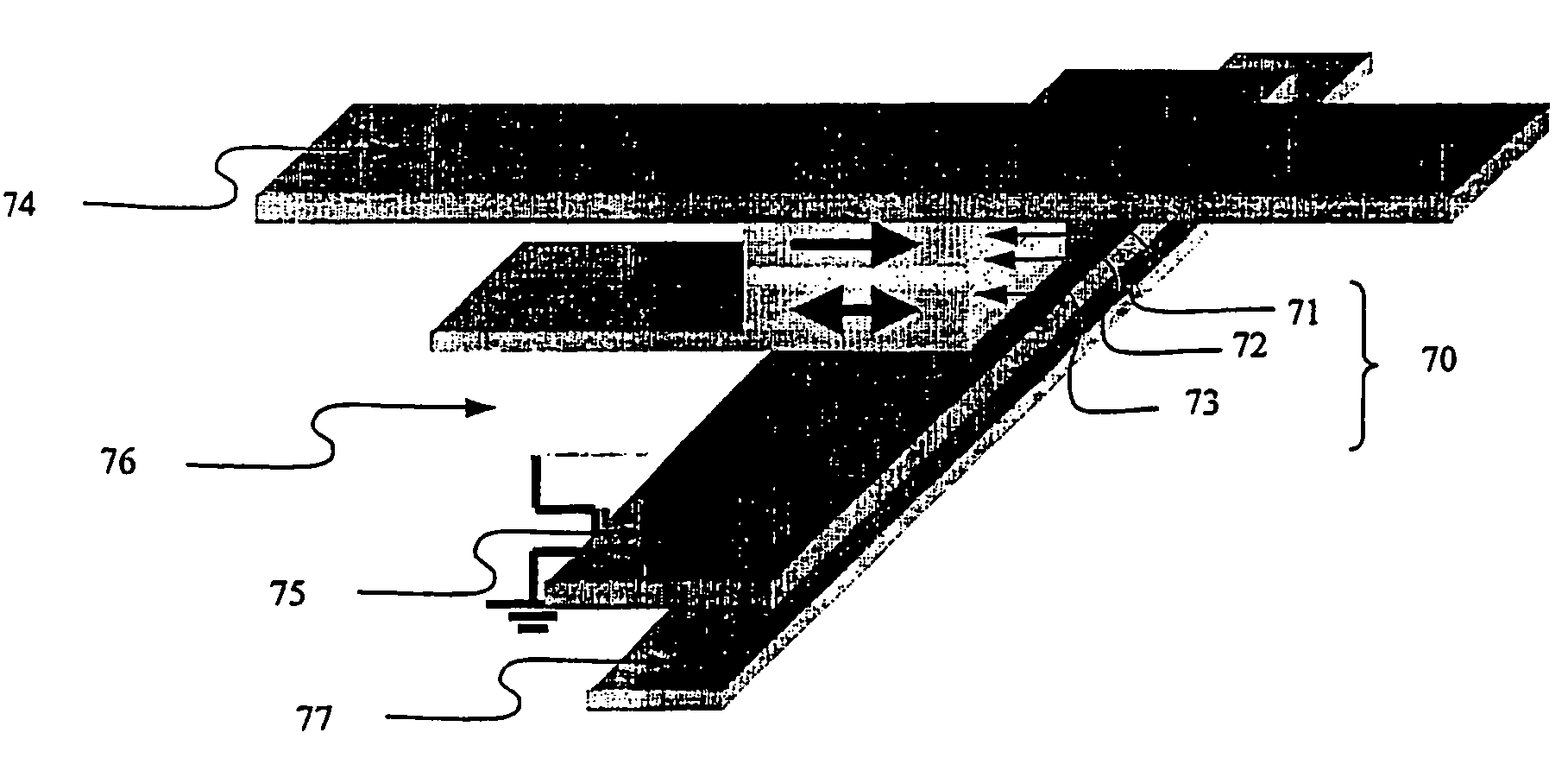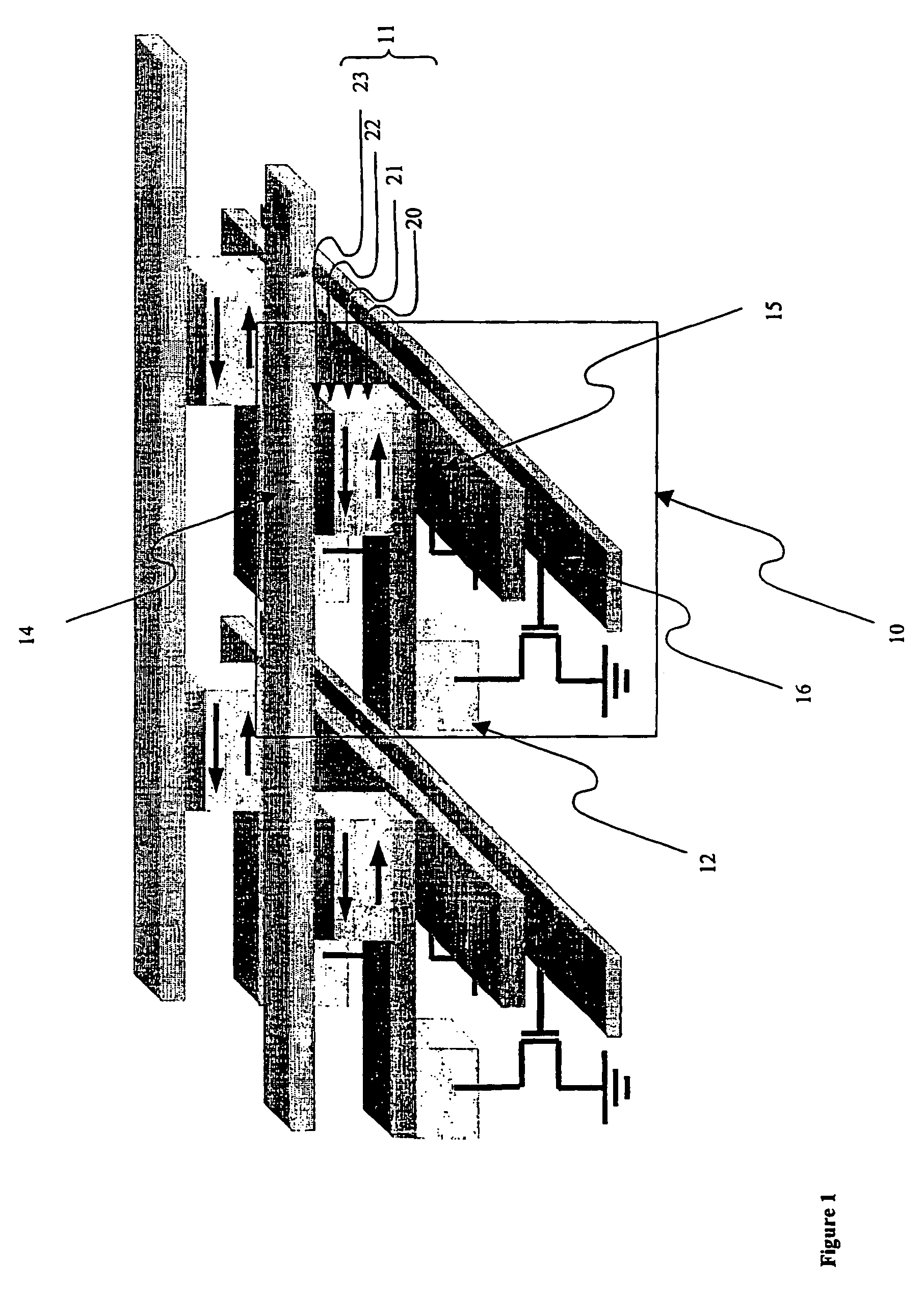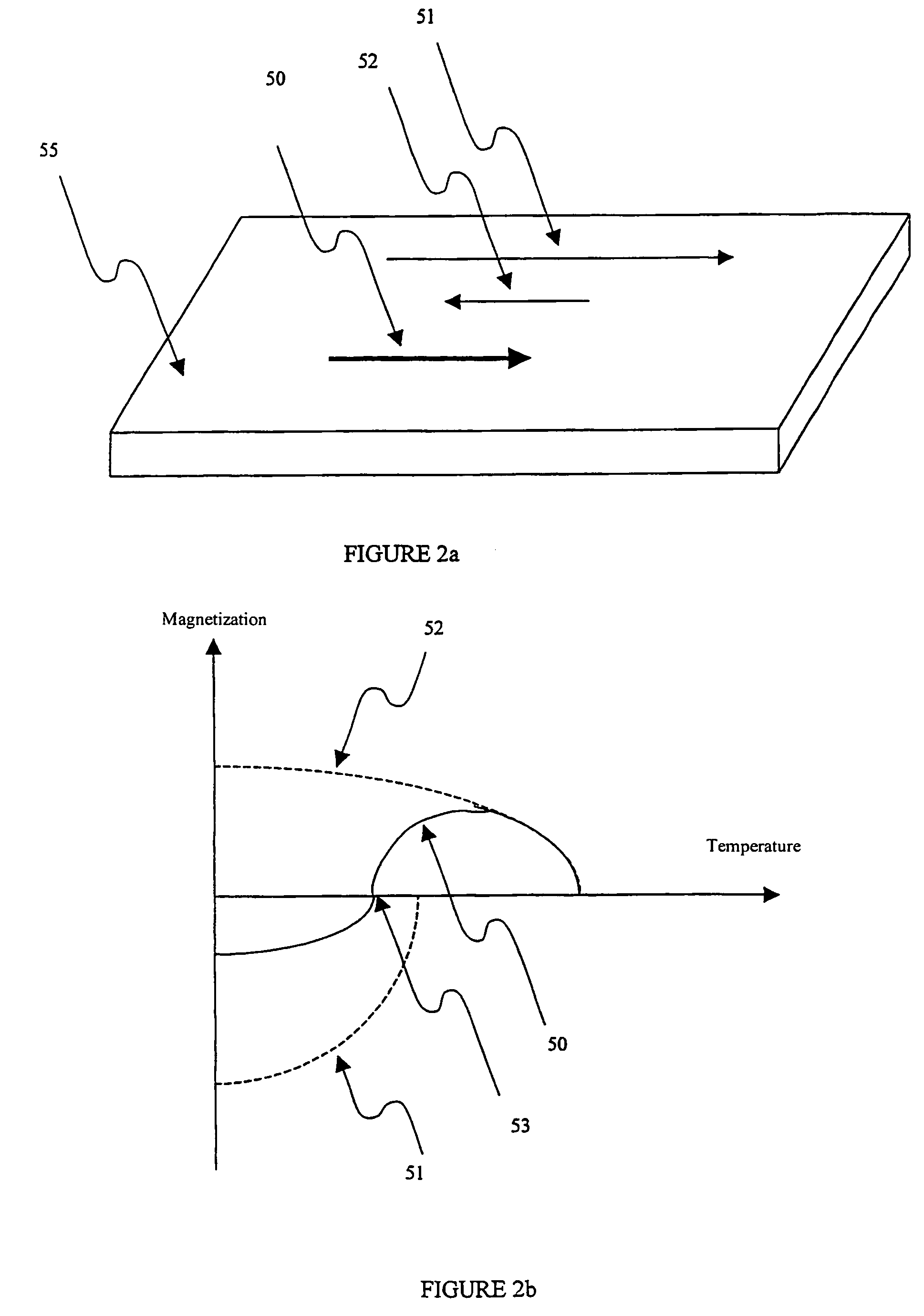Magnetic memory with write inhibit selection and the writing method for same
a write inhibiting and magnetic memory technology, applied in the field of magnetic memories, can solve the problems of limiting integration possibilities, aging problems of ferroelectric-based memories, and risk of never writing into the selected memory point, and achieve the effect of minimizing addressing errors
- Summary
- Abstract
- Description
- Claims
- Application Information
AI Technical Summary
Benefits of technology
Problems solved by technology
Method used
Image
Examples
Embodiment Construction
[0032]As briefly reminded hereafter, the operation of the memory according to the present invention rests on the implementation of a heating phase of the free FAA layer of the MTJ of the memory points forming it. The reference of this temperature rise is the so-called compensation temperature. This phenomenon will thus first be rapidly detailed.
[0033]As can be observed from FIG. 2a, macroscopic magnetization (50) of a layer (55) of an FAA can be resolved into two contributions, one contribution due to rare earth atom sub-lattice (51) and one contribution due to transition metal atom sub-lattice (52). Schematically, macroscopic magnetization (50) results from the vectorial sum of the two sub-lattices (51) and (52).
[0034]Further, the magnetizations of rare earth lattice (51) and of transition metal sub-lattice (52) are strongly coupled together, resulting in a joint behavior upon switching of macroscopic magnetization (50) or reorientation by a selective excitation of one of sub-latti...
PUM
| Property | Measurement | Unit |
|---|---|---|
| magnetization | aaaaa | aaaaa |
| insulating | aaaaa | aaaaa |
| operating temperature | aaaaa | aaaaa |
Abstract
Description
Claims
Application Information
 Login to View More
Login to View More - R&D
- Intellectual Property
- Life Sciences
- Materials
- Tech Scout
- Unparalleled Data Quality
- Higher Quality Content
- 60% Fewer Hallucinations
Browse by: Latest US Patents, China's latest patents, Technical Efficacy Thesaurus, Application Domain, Technology Topic, Popular Technical Reports.
© 2025 PatSnap. All rights reserved.Legal|Privacy policy|Modern Slavery Act Transparency Statement|Sitemap|About US| Contact US: help@patsnap.com



